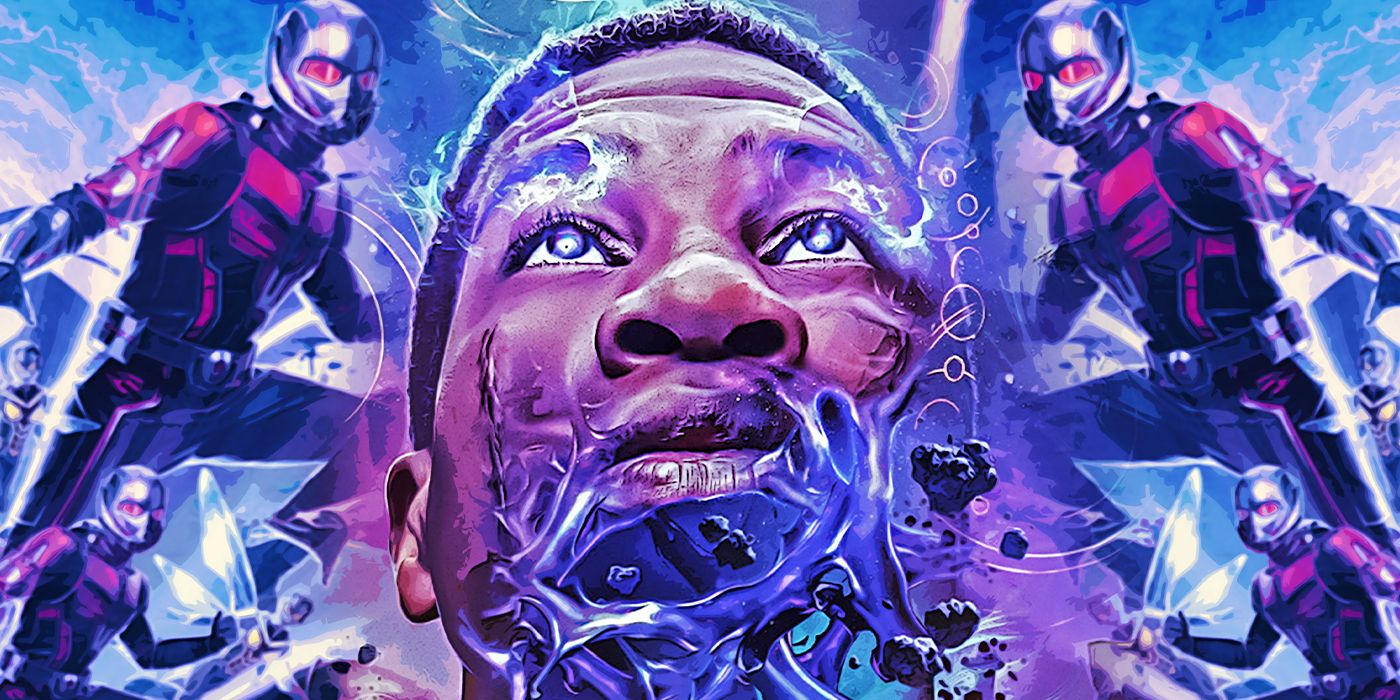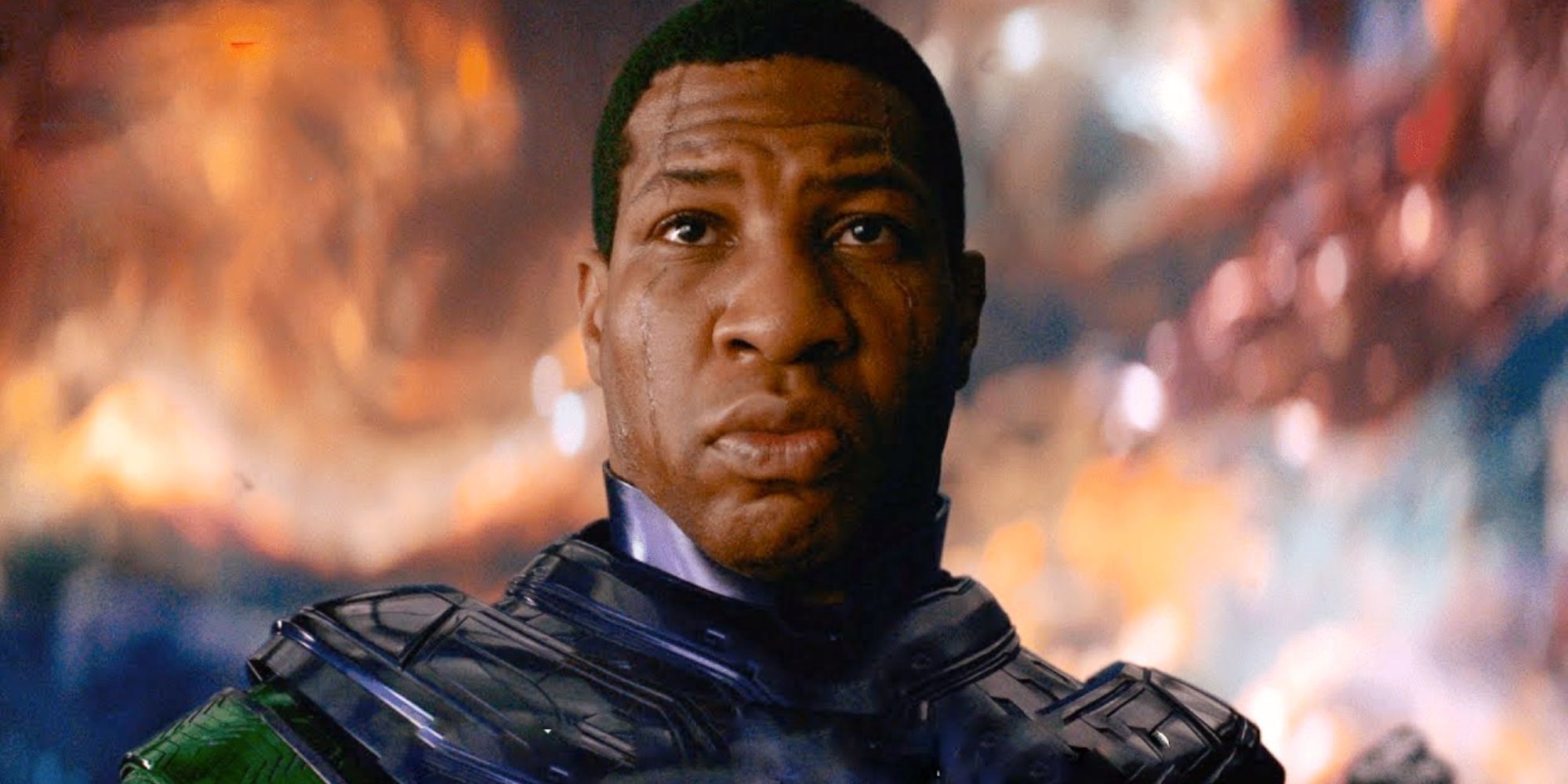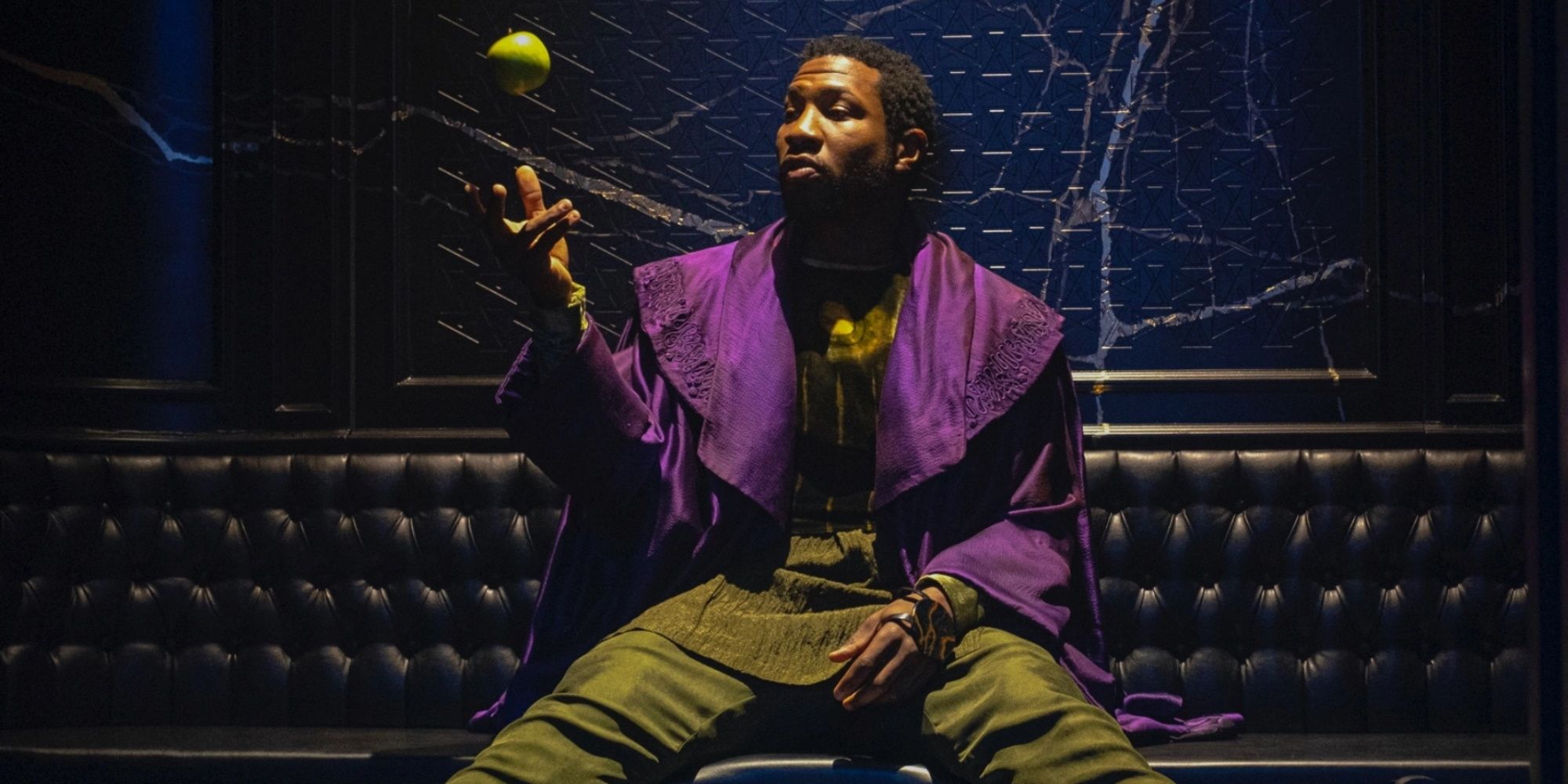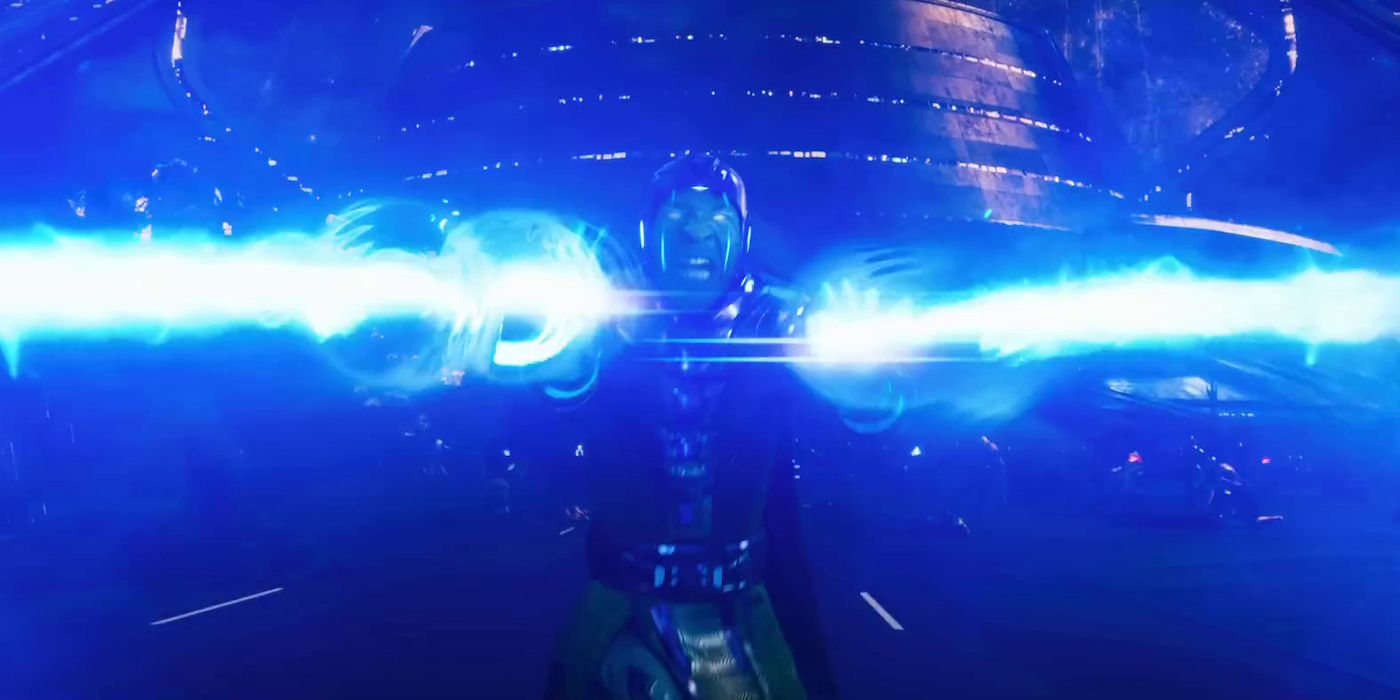Editor's Note: The following article contains spoilers for Ant-Man and the Wasp: Quantumania.While there are certainly many fans of the Ant-Man franchise who were eager to see their favorite tiny hero, it's safe to say that there's another major character Marvel fans have been waiting to meet. That of course is the Marvel Cinematic Universe's next big bad, Kang the Conqueror (Jonathan Majors). Suffice it to say, Kang has a pretty large gauntlet to fill, with his predecessor Thanos the Mad Titan (Josh Brolin) being beloved by Marvel fans everywhere. Prior to the release of Ant-Man and the Wasp: Quantumania (2023), it seemed that Kang would have no issue taking over as the franchise's next genocidal maniac, as he was brilliantly teased in the season finale of Loki (2021-) Season 1.
However, Kang's role in Ant-Man and the Wasp: Quantumania leaves a lot to be desired. Don't get us wrong, Kang is easily the highlight of the film (though to be fair that's because the film has some glaring problems), but it is far from a perfect introduction to the character. For several different reasons, Ant-Man and the Wasp: Quantumania makes a literally multidimensional super villain feel like yet another one-off Marvel Movie bad guy who will be forgotten about by the time the next MCU project comes around.
'Ant-Man & the Wasp: Quantumania' Misses an Opportunity to Make Kang Relatable
Easily one of the biggest reasons why Thanos remains a memorable antagonist to this day is his compelling motivation. In the Mad Titan's mind, Thanos is the only person who can truly save the universe. The sole reason Thanos wants to acquire ultimate power through the Infinity Stones was so he could wipe out half of the universe's inhabitants. That certainly sounds cruel and unredeemable, but his reasoning is the galaxy's resources are drastically depleting, and culling its inhabitants will lead to prosperity. Before you could argue that this was all a ruse for Thanos to just gain more power, that's proven to not be the case through his genuine anguish in sacrificing Gamora (Zoe Saldaña) and his decision to destroy the Infinity Stones after the infamous Blip.
When Kang first crash lands into the Quantum Realm and makes an ally in Janet Van Dyne (Michelle Pfeiffer), it initially seems like we're going to get a better look at what makes him tick. That, unfortunately, proves not to be the case as in his scenes with Janet, we don't really learn anything about Kang. Yes Janet discovers that her colleague is actually a time-traveling conqueror, but most audience members already knew that going into Quantumania. Essentially all both we as an audience and the heroes of the MCU learn is that "Kang is a bad guy who killed a lot of people", which isn't exactly a unique concept for a Marvel villain. Due to that, Kang as an individual doesn't really feel all that unique when you compare him to the rest of the MCU's rogues gallery.
Jonathan Majors Already Gave a Far Superior MCU Performance
Perhaps what makes Kang's appearance in Ant-Man and the Wasp: Quantumania particularly disappointing is just how good Jonathan Majors was in Loki. The moment when He Who Remains comes down that elevator in the finale of Loki season one is the same moment when one of the most unique and interesting characters in the entire Marvel Cinematic Universe arrives. Every second this character is on-screen, he just exudes personality, charisma, and even ironic fear as he tells Loki (Tom Hiddleston) and Sylvie (Sophia Di Martino) how he ended up as the architect for their entire lifetimes. Majors delightfully chews the scenery as he's clearly given the opportunity to act and provide his own spin in his debut appearance.
Personality-wise, Kang is the complete opposite of He Who Remains. Where He Who Remains is jokey, comical, and willing to invite chaos to the multiverse, Kang is serious, cold, and has a fierce devotion to bringing order through any means necessary. On one hand, it's a brilliant move that does make He Who Remains and Kang feel like completely different characters despite being played by the same equally brilliant actor. On the other hand, Kang's stoic demeanor for the full two hours of Quantumania isn't nearly as interesting or engaging as the thirty or so minutes that He Who Remains had his time to shine.
As we see with the variants end credits scene, Majors is clearly having a lot of fun playing versions of the character with different personalities, dialects, and goals, but that also makes Kang the least interesting variant and he's supposed to be the most important one.
Kang's Power Level Is Frustratingly Inconsistent
Despite Kang losing his ability to escape the Quantum Realm and wreak havoc on other timelines, Kang still makes a name for himself in the mysterious dimension. He builds himself an impenetrable fortress, amasses a loyal robotic army, and essentially claims dominion over all the realm's inhabitants. When Kang enters the fight for himself, we see that his vast array of abilities includes him being a human delete button, with lasers that instantly disintegrate enemies as if they were insects in his path.
Kang is clearly a powerful being. After all, we know that he's killed other timelines' versions of the Avengers countless times. Yet, when a horde of oversized ants interrupts his unnecessary monologue, he's suddenly defenseless. This is a person who has seemingly killed Asgardian gods multiple times, and yet he's not a match for some big ants? What happened to those lasers that could destroy everything in his path?
If that wasn't enough, Kang couldn't even handle a battle-damaged Ant-Man (Paul Rudd) in a one-on-one fistfight. Obviously, Kang is going to be outsmarted one way or another, but his defeat in Quantumania just feels like it was so easy. If Scott's ending monologue didn't explicitly tease that Kang will be back, the Conqueror would have felt like just another disposable villain casualty.
It Isn't Too Late To Make Kang Feel Like More of a Threat
Yes, Kang's introduction is not perfect and could have been handled much better, but this isn't the first time a great Marvel antagonist has been introduced in a lackluster fashion. Back in the first Guardians of the Galaxy (2014), Thanos made his big speaking role debut in an utterly bizarre and completely out-of-place sequence. This supposed major threat to the MCU was introduced to no fanfare or build-up of any kind, staining an otherwise pretty flawless film. That being said, Thanos's first scene in Avengers: Infinity War (2018) was the exact opposite, being shocking, threatening, and engaging all at the same time.
As we know, Kang is a character who famously has all the time in the world. That gives him more than enough of an opportunity to prove to Marvel fans what he's really capable of. Perhaps one day, either he or his variants will become the biggest and best threat the MCU has seen yet.
Ant-Man and the Wasp: Quantumania is now in theaters.




